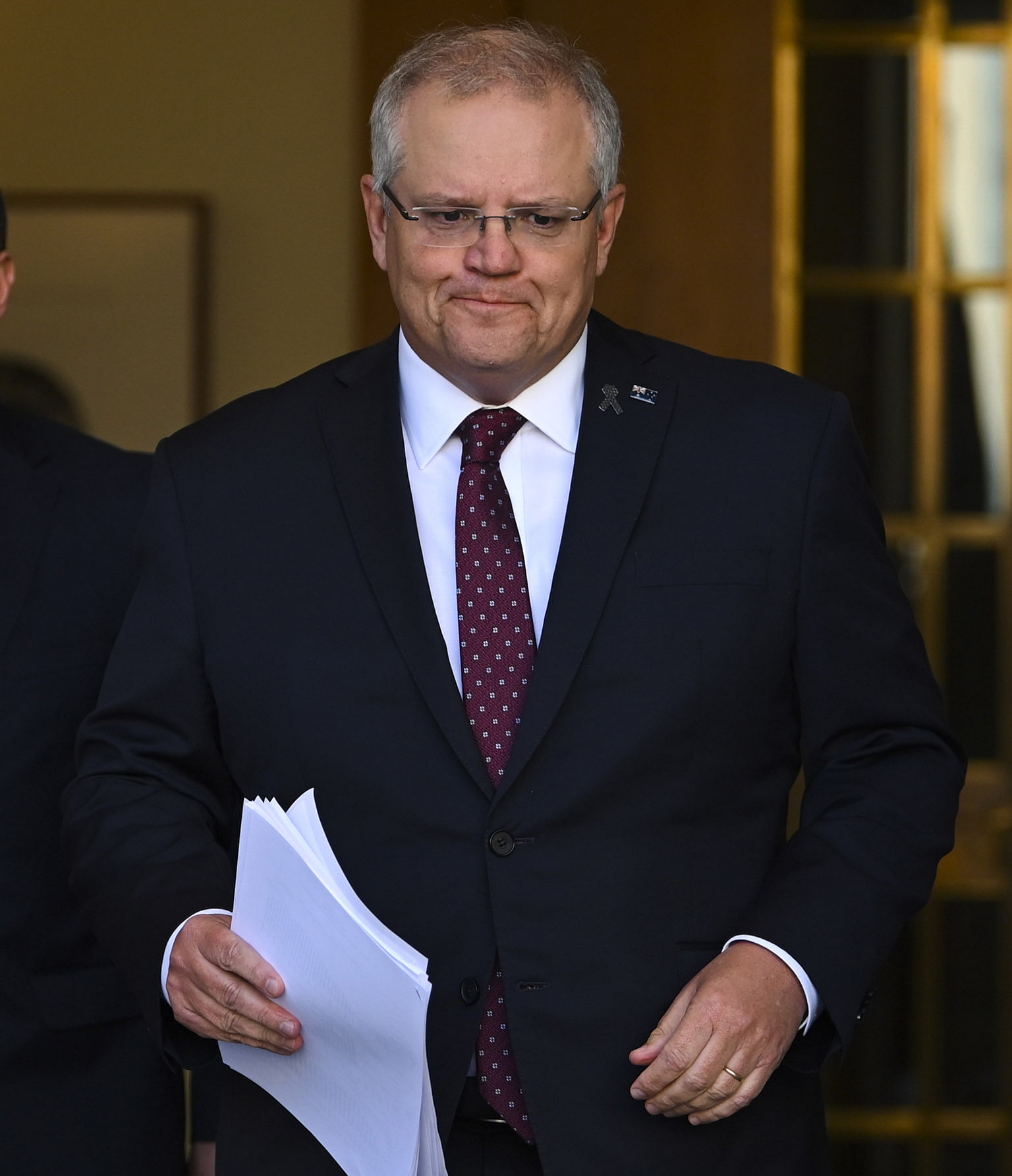Coronavirus: Australian PM echoes US ‘eyes wide open’ approach to China
He tilts to security ally over largest trade partner's pandemic conduct
Sign up now: Get insights on Asia's fast-moving developments
Intriguingly, Australian Prime Minister Scott Morrison and Foreign Minister Marise Payne have both used the same phrase in recent days to describe ties with China, calling for the country to approach Beijing with "eyes wide open".
They were describing ties with China in the wake of the coronavirus pandemic, as they each called for a global inquiry into the origins of the outbreak.
But their wording had a somewhat familiar ring.
Last August, US Secretary of State Mike Pompeo visited Sydney and was asked how worried Australians should be about China's rise.
Sitting alongside Ms Payne, he advised: "We have to be very, very careful ... I think everyone needs to have their eyes wide open."
In the midst of the Covid-19 crisis, and questions that centred around China's lack of transparency about its outbreak, Canberra appears to be taking his advice.
Australia has long found itself caught between the interests of its closest security ally, the United States, and its largest trading partner, China.
This week, the Morrison government seems to have decided to tilt to one side of this fine line and has joined Washington's efforts to castigate Beijing.
Mr Morrison has been leading an international push to expand the powers of the World Health Organisation (WHO), saying it should be able to have the powers of weapons inspectors to deal with future pandemics. This would allow the agency to enter countries without invitation.
The proposal follows growing criticism of the WHO's handling of the crisis, including concerns that it was too supportive of Beijing's response to the outbreak.
In recent days, Mr Morrison has pushed his proposal with "like-minded" countries, discussing it with US President Donald Trump, German Chancellor Angela Merkel and French President Emmanuel Macron.

He has been careful not to single out China, saying yesterday: "Our purpose here is just pretty simple - we'd like the world to be safer when it comes to viruses."
But he has clearly decided to risk pushing for reform of the WHO, even if this angers Beijing.
His confidence on the global stage may stem partly from Australia's position as one of the few Western countries to have staved off a serious Covid-19 outbreak. Australia, with a population of about 25 million people, had 6,547 cases and 67 deaths as of yesterday. Just 12 cases were recorded on Wednesday.
Mr Morrison may also be hoping that Australia's trade with China will continue, even if diplomatic ties sour. Despite the relationship being tense in recent years, trade has continued to surge.
China relies on Australia's steady supply of resources and has also made no significant moves to stem the flow of Chinese students and tourists Down Under. But Australia's tourism and education will be badly hurt by the Covid-19-related curbs on travel.
Australia also this week demonstrated its firm commitment to its alliance with the US, participating in a military exercise with American warships in the South China Sea.
The involvement of the Australian frigate was probably planned some time ago, but it shows Canberra's willingness to support Washington's efforts to ensure freedom of navigation in the region.
Before becoming PM in 2018, Mr Morrison had little background in international affairs.
But he gained valuable experience following the Christchurch terrorist attack last year, when an Australian far-right extremist shooter killed 51 Muslims at two mosques in New Zealand.
In the aftermath, Mr Morrison helped to lead the push for a crackdown on the spread of extremist content on social media.
He has also indicated a Trump-like scepticism of international bodies such as the WHO. Last October, in one of his few foreign policy speeches as leader, he controversially condemned "negative globalism", saying "unaccountable" international bodies should not override Australia's national interests.
He appeared to be targeting the United Nations, which has criticised his approach to climate change and refugees.
Mr Morrison has so far carefully avoided echoing some of the White House's harsher rhetoric towards China. He will not want to inflame tensions unnecessarily.
But his conduct this week suggests he will be increasingly willing to publicly demonstrate his wariness of Beijing.
This is likely to be just the start of his US-coined "eyes wide open" approach; he is yet to learn whether there will be a cost from Beijing.


